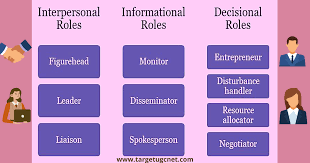Social Decision Making: Understanding the Dynamics
Social decision making is a complex process that involves considering the opinions, preferences, and needs of others when making choices that impact a group or community. It is an essential aspect of human interaction and plays a crucial role in various aspects of society.
When engaging in social decision making, individuals must navigate through a variety of factors, including social norms, cultural influences, power dynamics, and group dynamics. These factors can significantly impact the outcome of decisions and shape the overall dynamics of a group or community.
One key aspect of social decision making is understanding the concept of consensus building. Consensus building involves reaching an agreement that satisfies the needs and concerns of all parties involved. This process requires effective communication, active listening, and a willingness to compromise in order to achieve a mutually beneficial outcome.
Another important consideration in social decision making is the influence of social influence. Individuals are often influenced by the opinions and actions of others within their social networks. This can lead to groupthink, where individuals prioritize harmony and conformity over critical thinking and independent judgment.
Effective social decision making requires individuals to balance their own needs and preferences with those of others in order to reach decisions that are fair, inclusive, and beneficial for all involved. By fostering open communication, promoting diversity of thought, and encouraging collaboration, groups can enhance their ability to make informed and impactful decisions.
In conclusion, social decision making is a multifaceted process that requires individuals to consider the perspectives and interests of others when making choices that affect a group or community. By understanding the dynamics at play and employing effective communication and collaboration strategies, individuals can navigate through complex social interactions with greater ease and achieve positive outcomes for all involved.
8 Essential Tips for Effective Social Decision Making
- Consider the perspectives of others involved in the decision.
- Communicate openly and honestly with all parties.
- Listen actively to understand different viewpoints.
- Evaluate potential outcomes and consequences of each option.
- Seek consensus when possible to ensure collective buy-in.
- Be aware of your biases and strive to make objective decisions.
- Take into account the impact of the decision on various stakeholders.
- Learn from past experiences to improve future social decision making.
Consider the perspectives of others involved in the decision.
When engaging in social decision making, it is crucial to consider the perspectives of others involved in the decision. By taking the time to understand and empathize with different viewpoints, individuals can gain valuable insights that may influence the outcome of the decision. Considering the perspectives of others fosters a sense of inclusivity, promotes open communication, and helps build stronger relationships within a group or community. This practice not only leads to more informed and well-rounded decisions but also demonstrates respect for the diverse opinions and experiences of those involved.
Communicate openly and honestly with all parties.
When it comes to social decision making, a crucial tip is to communicate openly and honestly with all parties involved. Effective communication lays the foundation for building trust, fostering understanding, and promoting transparency in the decision-making process. By sharing information openly and honestly, individuals can ensure that all perspectives are considered, concerns are addressed, and consensus is reached in a fair and inclusive manner. Open communication helps create a collaborative environment where ideas can be freely exchanged, leading to more informed decisions that benefit the group as a whole.
Listen actively to understand different viewpoints.
Active listening is a crucial tip in social decision making as it allows individuals to truly understand and appreciate different viewpoints within a group or community. By actively engaging with others and demonstrating genuine interest in their perspectives, individuals can foster open communication, build trust, and cultivate a more inclusive decision-making process. Active listening not only helps to uncover valuable insights and information but also promotes empathy and respect for diverse opinions, ultimately leading to more informed and collaborative decisions that benefit everyone involved.
Evaluate potential outcomes and consequences of each option.
When engaging in social decision making, it is crucial to evaluate the potential outcomes and consequences of each option before making a choice. By carefully considering the possible results of each decision, individuals can assess the impact on themselves and others within the group or community. This thoughtful evaluation helps in making informed choices that align with the values, goals, and well-being of all involved parties. Taking the time to analyze potential outcomes can lead to more effective and sustainable decisions that contribute to positive social interactions and relationships.
Seek consensus when possible to ensure collective buy-in.
Seeking consensus when possible in social decision making is crucial to ensure collective buy-in and foster a sense of unity within a group or community. By striving to reach an agreement that satisfies the needs and concerns of all parties involved, individuals can promote collaboration, inclusivity, and shared ownership of decisions. Consensus building encourages active participation, open dialogue, and mutual respect among group members, ultimately leading to more effective and sustainable outcomes that reflect the collective values and priorities of the group.
Be aware of your biases and strive to make objective decisions.
When engaging in social decision making, it is crucial to be mindful of your biases and strive to make objective decisions. Our inherent biases can influence the way we perceive information and interpret situations, potentially leading to skewed decision-making outcomes. By actively acknowledging and addressing our biases, we can enhance our ability to make more rational and fair decisions that consider the perspectives of others and promote positive social dynamics.
Take into account the impact of the decision on various stakeholders.
When engaging in social decision making, it is crucial to take into account the impact of the decision on various stakeholders. Considering the perspectives, interests, and needs of all parties involved can help ensure that the decision is fair, inclusive, and beneficial for everyone affected. By recognizing the diverse range of stakeholders and their potential concerns, individuals can make more informed decisions that promote harmony, collaboration, and positive outcomes within a group or community.
Learn from past experiences to improve future social decision making.
Learning from past experiences is a valuable tip for improving future social decision making. By reflecting on previous decisions and their outcomes, individuals can gain insights into what worked well and what could have been done differently. This reflection allows for a more informed approach to future social decision making, enabling individuals to apply lessons learned and avoid repeating past mistakes. Incorporating this tip into one’s decision-making process can lead to more effective and successful outcomes in social interactions and group dynamics.




